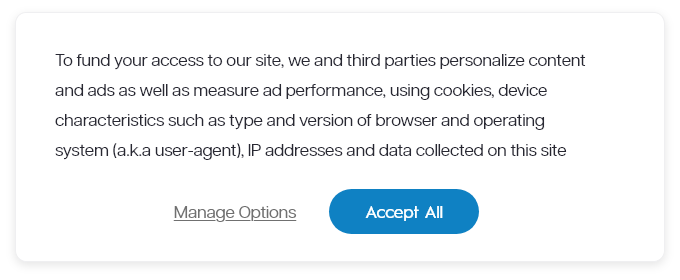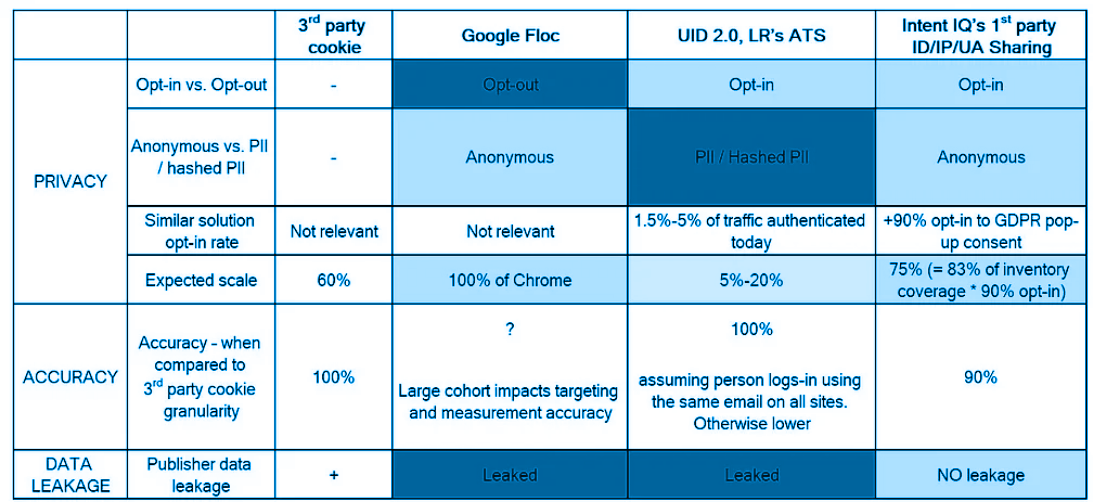Data Sharing Choice
Data Sharing Choice (DSC) is about keeping the internet free and putting users in the driver’s seat of protecting their data privacy. This can get very technical very quickly.
To explain this effectively, pick your primary lens:
I’m an SSP or a DSP
SSPs and DSPs face the challenge of navigating an evolving marketplace where identity loss is increasing and third-party cookie effectiveness is declining. While publisher first-party data is becoming more important, its inherent reach limitations are clear and 50% to 70% of advertising revenue relies on more scalable identity data. SSPs and DSPs must continue to help bridge this gap, ensuring consistent value delivery for both advertisers and publishers across the marketplace.
Intent IQ’s opt-in-based 1st party ID sharing solution, dubbed Data Sharing Choice (‘DSC’), addresses third party cookie deprecation by (i) asking consumers to approve the sharing of the site’s cookie ID, IP address, and user-agent, and; (ii) providing a privacy friendly universal ID across sites and devices, regardless of IP address and user-agent changes.
The consumer request will look like this:

Intent IQ’s solution covers 83% of ad inventory with an accuracy of 90%.
The only parameters used by Intent IQ’s solution, namely a device first party IDs, IP addresses, and user-agents, do not, by themselves, identify any individual, if not merged with PII or hashed PII. This is the same as with Google FLOC, which is anonymous for as long as Google does not merge the FLOC with the person’s PII (A person PII is known to Google from the person’s usage of Google services).
Intent IQ’s solution is even more privacy-friendly than FLOC – FLOC is opt-out based, whereas Intent IQ’s industry proposal asks for opt-in.
Based on GDPR pop up consent opt-in rate of over 90% for cookies, we expect the same opt-in rate for sharing of first-party cookie ID in the Intent IQ proposed solution.
Intent IQ’s solution is an opt-in-based 1st party ID sharing solution augmenting log-in solutions (UID 2.0/LR’s ATS) for consumers hesitating to disclose their email address everywhere they go.

To avoid a meltdown, the industry should quickly adopt a scalable, opt-in solution.